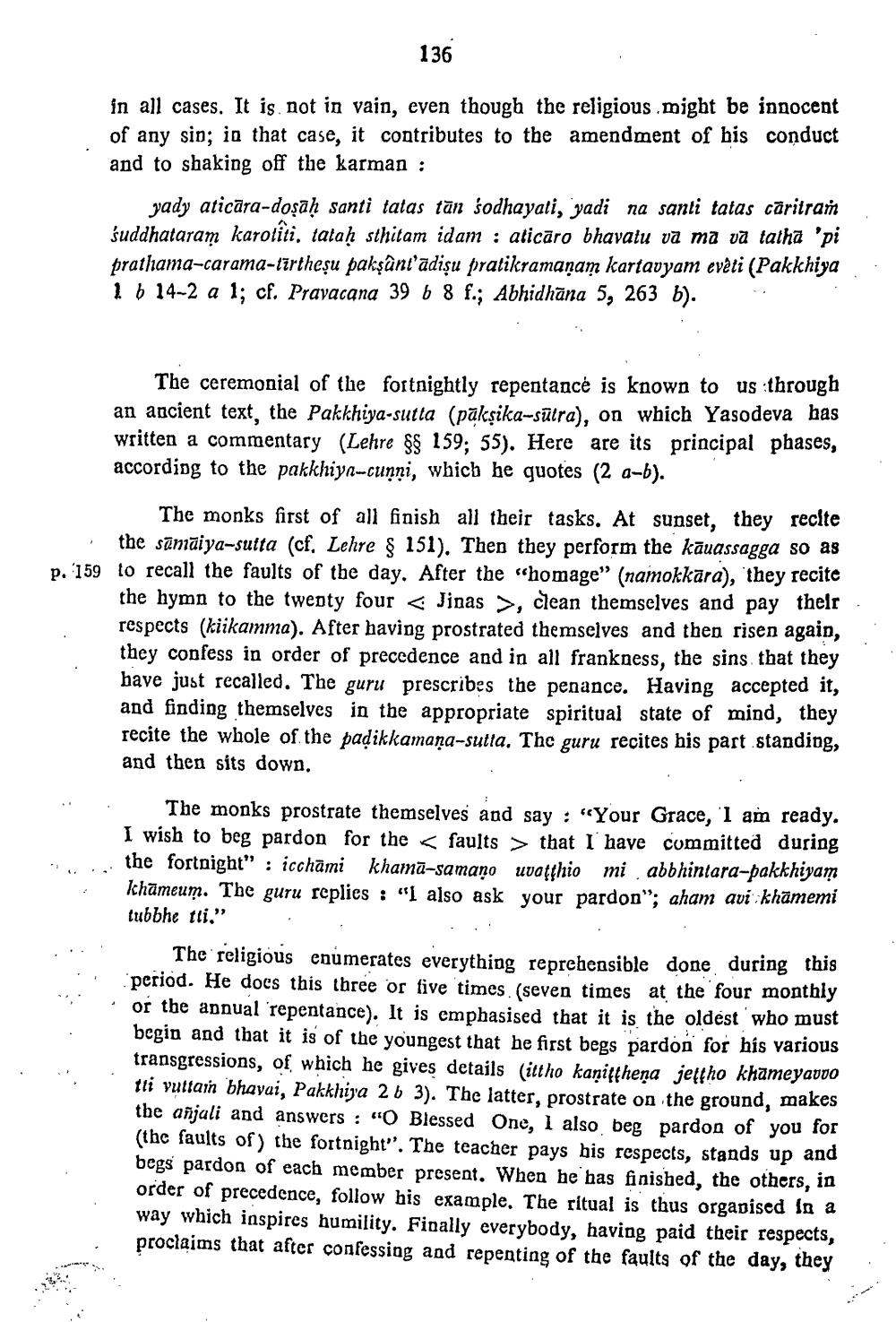________________
136
in all cases. It is not in vain, even though the religious might be innocent of any sip; in that case, it contributes to the amendment of his conduct and to shaking off the karman :
yady aticāra-dosah santi tatas tān sodhayali, yadi na santi tatas caritram śuddhataram karoliti. tataḥ sthitam idam : aticāro bhavalu va ma va tatha 'pi prathama-carama-tīrtheșu pakşânt'ādișu pratikramaņam kartavyam evêti (Pakkhiya I b 14-2 a l; cf. Pravacana 39 b 8 f.; Abhidhāna 5, 263 b).
The ceremonial of the fortnightly repentance is known to us through an ancient text, the Pakkhiya-sutta (pālcşika-sülra), on which Yasodeva has written a commentary (Lehre s8 159; 55). Here are its principal phases, according to the pakkhiyn-cunni, which he quotes (2 a-b).
The monks first of all finish all their tasks. At sunset, they recite
the sānāiya-sutta (cf. Lehre § 151). Then they perform the kāuassagga so as p. 159 to recall the faults of the day. After the chomage" (namokkāra), they recite
the hymn to the twenty four < Jinas >, clean themselves and pay their respects (kiikamma). After having prostrated themselves and then risen again, they confess in order of precedence and in all frankness, the sins that they have just recalled. The guru prescribes the penance. Having accepted it, and finding themselves in the appropriate spiritual state of mind, they recite the whole of the padikkamana-sutta, The guru recites his part standing, and then sits down.
.
The monks prostrate themselves and say: "Your Grace, 'I am ready. I wish to beg pardon for the faults > that I have committed during .the fortnight" : icchami khama-samano uvatthio mi abbhintara-pakkhiyam
khāmeum. The guru replies: "I also ask your pardon"; aham avi khämemi tubbhe ti."
The religious enumerates everything reprehensible done during this period. He does this three or five times (seven times at the four monthly or the annual repentance). It is emphasised that it is the oldest who must begin and that it is of the youngest that he first begs pardon for his various transgressions, of which he gives details (ittho kanitthena jettho khameyavdo tli yuttain bhayai, Pakkhiya 2 b 3). The latter, prostrate on the ground, makes the añjali and answers : "O Blessed One, I also beg pardon of you for (the faults of the fortnight”. The teacher pays his respects, stands up and begs pardon of each member present. When he has finished, the others, in order of precedence, follow his example. The ritual is thus orgapised in a way which inspires humility. Finally everybody, having paid their respects, proclaims that after confessing and repenting of the faults of the day, they




